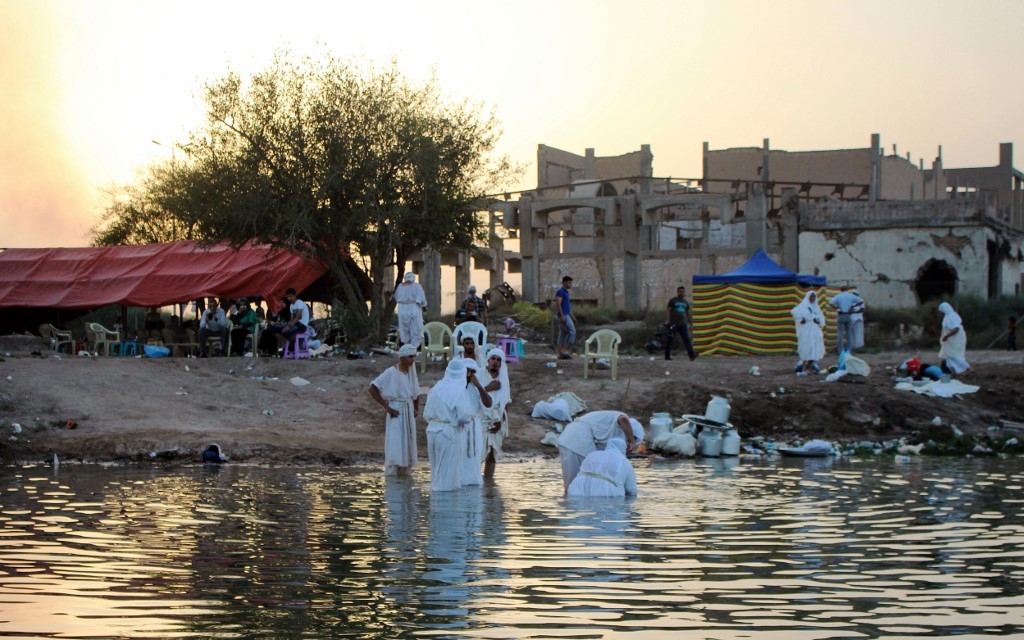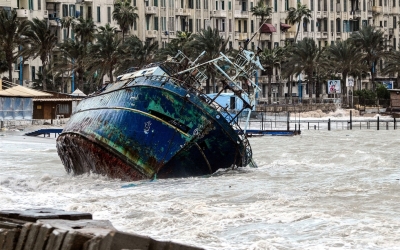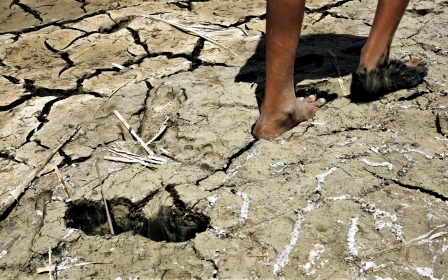Climate crisis: Cities in Egypt and Iraq could be wiped out by 2050

Major coastal cities in Egypt and Iraq could be decimated by 2050 as a result of rising sea levels, a new report has revealed.
Research conducted by Climate Central, a US-based non-profit news organisation, has tripled initial estimates of global vulnerability to sea level rises and coastal flooding.
New MEE newsletter: Jerusalem Dispatch
Sign up to get the latest insights and analysis on Israel-Palestine, alongside Turkey Unpacked and other MEE newsletters
According to Climate Central's findings, major cities in Asia are at risk of being potentially wiped out and there are concerns for Alexandria in Egypt and Basra in Iraq.
The revised estimates, published in the journal Nature Communications, are based on analysis of coastal topography around the world.
Previous models have used satellite data which exaggerated the altitude of land because of tall buildings and trees.
Displaced people, sinking cities
Climate Central's data shows that Basra, Iraq's second biggest city, could be partially submerged as a result of rising sea waters, leading to thousands becoming displaced from their homes.
John Castellaw, a retired Marine Corps lieutenant general who was chief of staff for the United States Central Command during the Iraq War, said that rising seawaters could fuel instability in the region.
They could, Castellaw told the New York Times, "threaten to drive further social and political instability in the region, which could reignite armed conflict and increase the likelihood of terrorism."
He added: “So this is far more than an environmental problem... it’s a humanitarian, security and possibly military problem too.”
The research also showed that the historic city of Alexandria in Egypt could be completely submerged and lost to the sea, compounding concerns that parts of the city are already sinking due to rising levels.
In 2017, scientists warned that climate change means that the countries in the Middle East and North African are susceptible to some of the most severe consequences of warming.
Benjamin Cook, a Nasa scientist at the Goddard Institute for Space Studies, told Middle East Eye that the region should "expect reduced rainfall, increased intensity and occurrence of droughts, and much more severe heat extremes".
Middle East Eye delivers independent and unrivalled coverage and analysis of the Middle East, North Africa and beyond. To learn more about republishing this content and the associated fees, please fill out this form. More about MEE can be found here.





